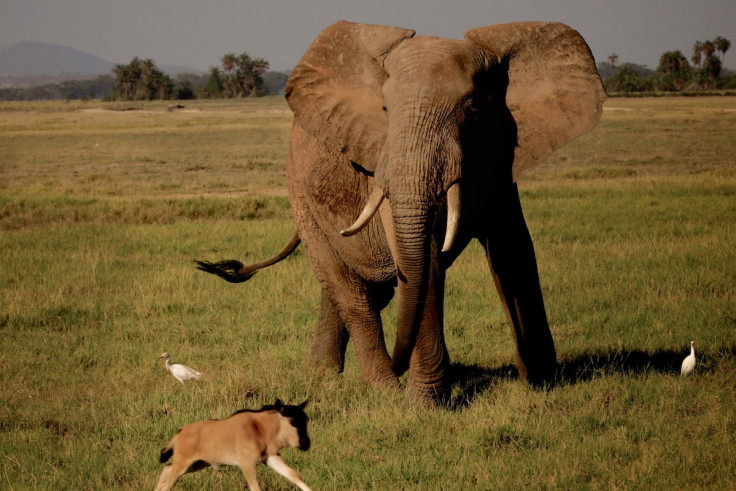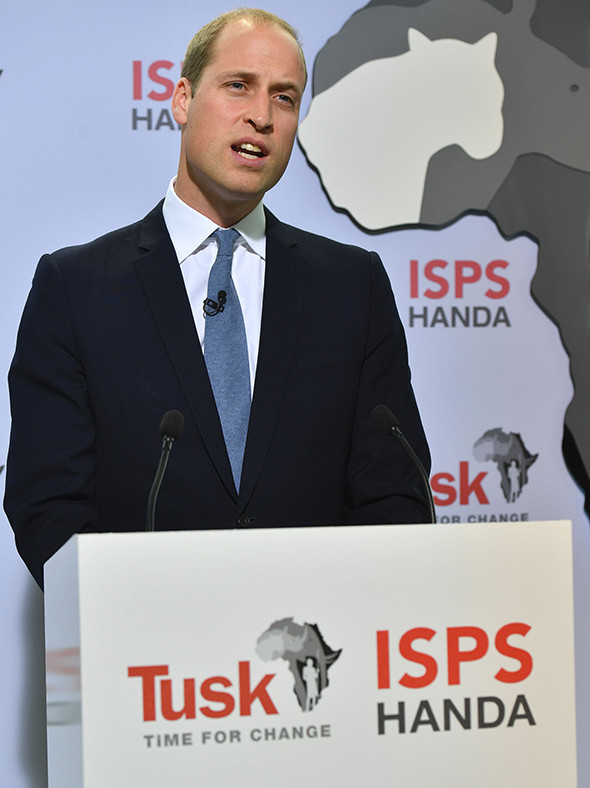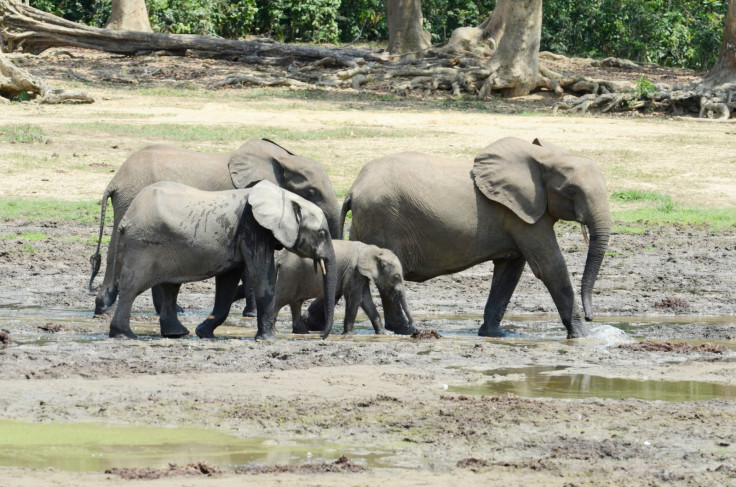The Ivory Game: Film-maker Walter Kohler on the British royal family's role in saving elephants
Shocking new Netflix documentary about the ivory trade airs on 4 November.

The Ivory Game is set to rattle bones as one of this autumn's star documentaries on Netflix that explores the dark world of ivory trafficking and boasts Leonardo DiCaprio as its executive producer.
Produced by Terra Mater, the international film division of Red Bull Media House and directed by Richard Ladkani and Kief Davidson, the in-depth and moving film goes undercover to reveal some real truths about the battle to save Africa's elephants.

As more than 150,000 elephants have been killed in the last five years, the ivory trade has quickly escalated into an extinction issue. The film drives home the notion that African elephants will be wiped out within 15 years if we don't do something about it right now.
Concerns about the ivory trade have reached the world stage, with the Duke of Cambridge recently giving a speech at conservation charity Tusk Trust's Time For Change event at The Shard in London. The aim of the event was to draw attention to some of the world's most endangered species targeted in the illegal wildlife trade.
Prince William lamented the effect of "poachers and traffickers" during the address in central London. He said: "When I was born (1982), there were one million elephants roaming Africa. By the time my daughter Charlotte was born last year, the numbers of savannah elephants had crashed to just 350,000.
CEO of Terra Mater, Walter Kohler, discussed the royals' role in tackling a devastating conservation crisis such as this in an interview with IBTimes UK.
"There is no doubt the royals hold the power to influence public opinion to a certain extent. Prince William's plea to bring attention to this kind of wildlife crime is inspiring and likely to further increase awareness of the issue."
Kohler said that informative documentaries play a huge part in raising awareness about the problem. "It's not just household names raising awareness for these causes. Platforms such as Netflix, which has a global audience of millions, support such projects and bring the reality of such issues into people's homes.
"Immediately after seeing the film during post-production, the team at Netflix felt it was something the world should see. Thanks to its powerful global reach, we couldn't have asked for a better company to partner with."
So why did Kohler and his team think this was the right time to release the documentary?
"Three years ago, Richard and Keith, the directors of the film, found a New York Times series called The Price of Ivory, which quantified the horrific frenzy of elephant murders and they knew they had to shed further light on the issue.
"They knew they'd stumbled upon their next big idea and the concept for the documentary was born. A partnership with Terra Mater Film Studios was signed and the production kicked off. Soon after, Vulcan Productions signed on to co-produce.
"Richard and Keith's story resonated immediately with us and we all shared their urgency. To help save the Earth's largest land mammal, we would have to pull together all of our resources to produce a compelling story that also inspires action.
"An elephant is killed every 15 minutes, so it's important for people to be aware of what's going on and how critical it is to keep them thriving in the ecosystem," said Kohler.

Making the documentary would not have been possible a few years ago, said Kohler: "Filming and producing The Ivory Game simply wouldn't have been possible a few years ago because the technology wasn't ready.
"For crackdowns in Tanzania and Zambia we use thermal imagery as well as night vision cameras and we also put a drone in the air whenever possible; we used a big chopper for more cinematic scenes and continuously shot with multiple cinema cameras, GoPros, bodycams and spy-button cams.
"We hid cameras in bags, shirts and eyewear and also used the latest technology in tracker gear to follow (and protect) our undercover informants from a distance when they met their targets, putting their own lives on the line."
Making the documentary was not short of shocking discoveries. Kohler discussed the day he and his team captured a poaching arrest on camera.
"I will never forget the day when I had to make the decision to send my team back out to Tanzania, just after they had arrived safely back home from the last shoot in Beijing.
"This was at the time when the news was just in that the mission to capture Shetani, the biggest poacher in Africa, was underway. In a stunning piece of filmmaking, we managed to capture the moment of arrest. It was a dangerous journey, but definitely worth every risk."
The Ivory Game debuts on Netflix on 4 November.

© Copyright IBTimes 2025. All rights reserved.






















